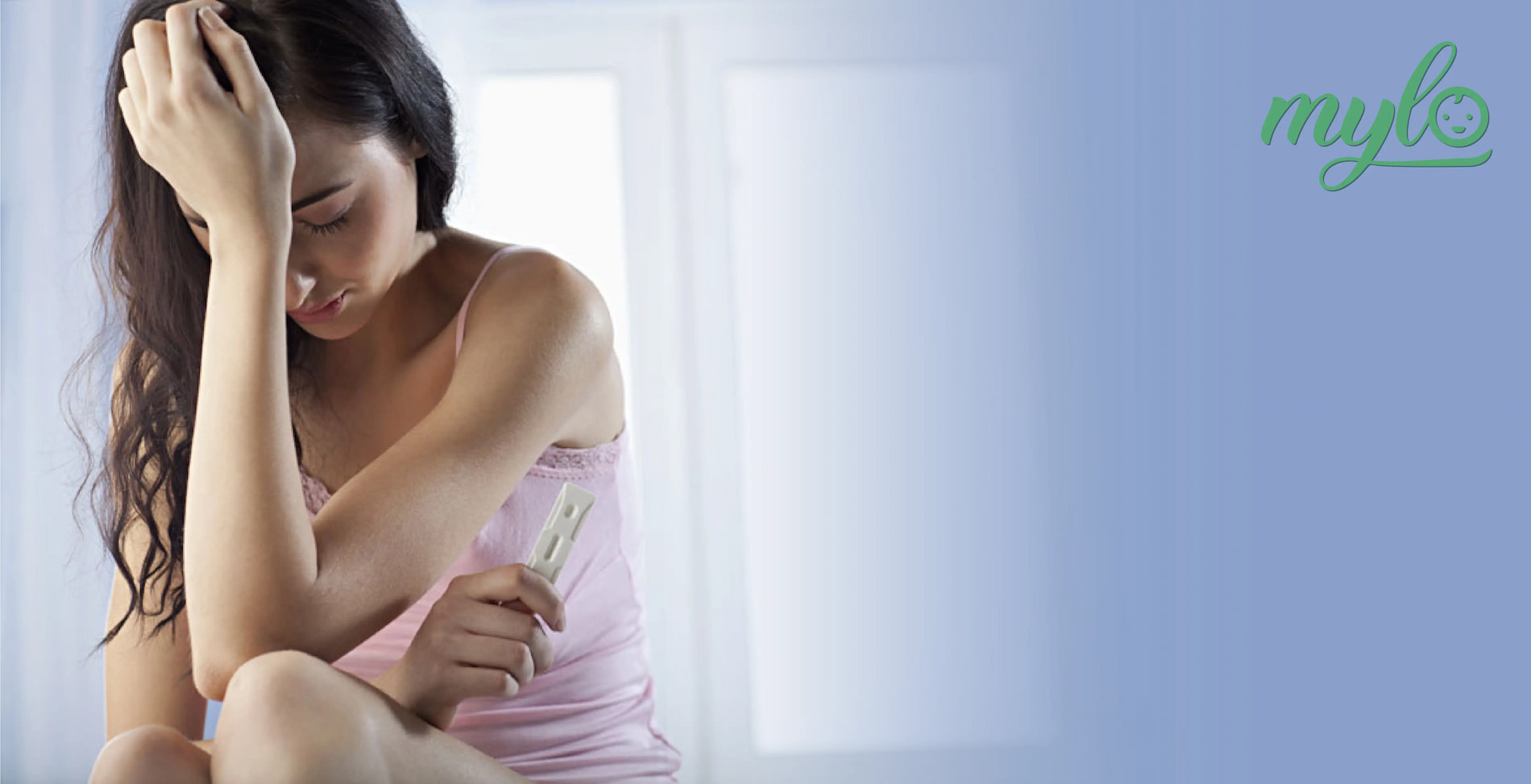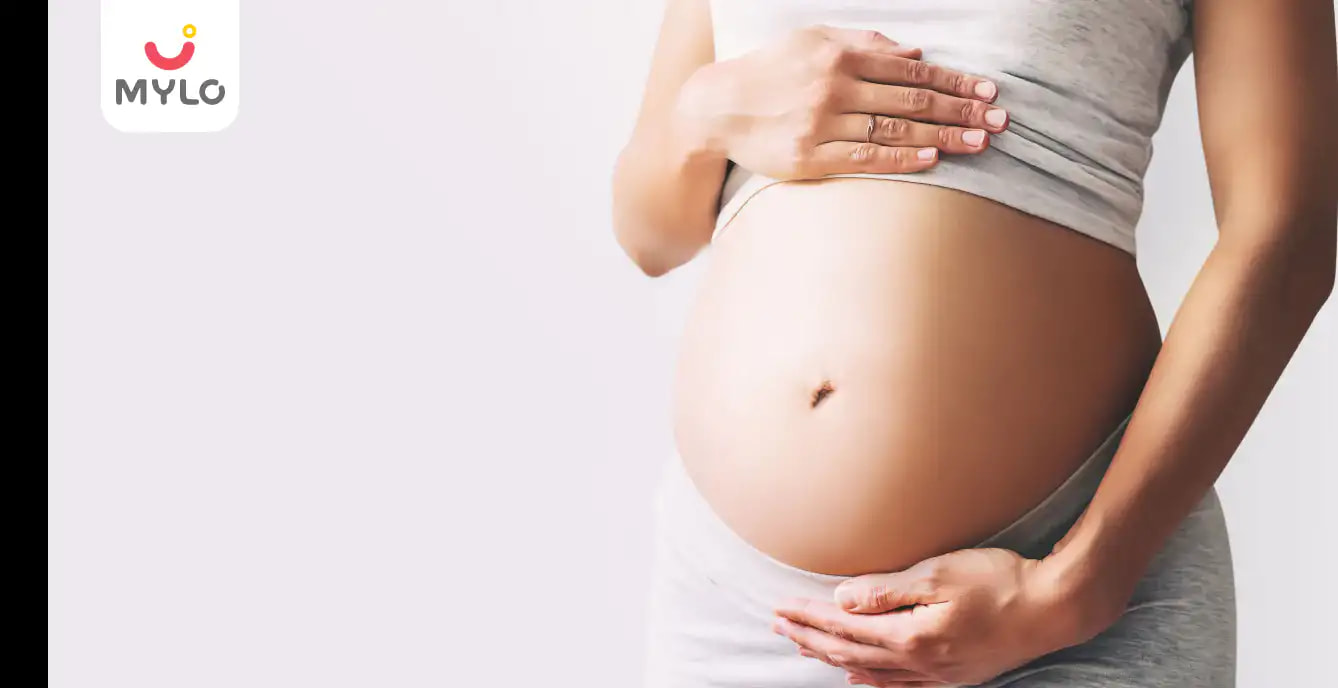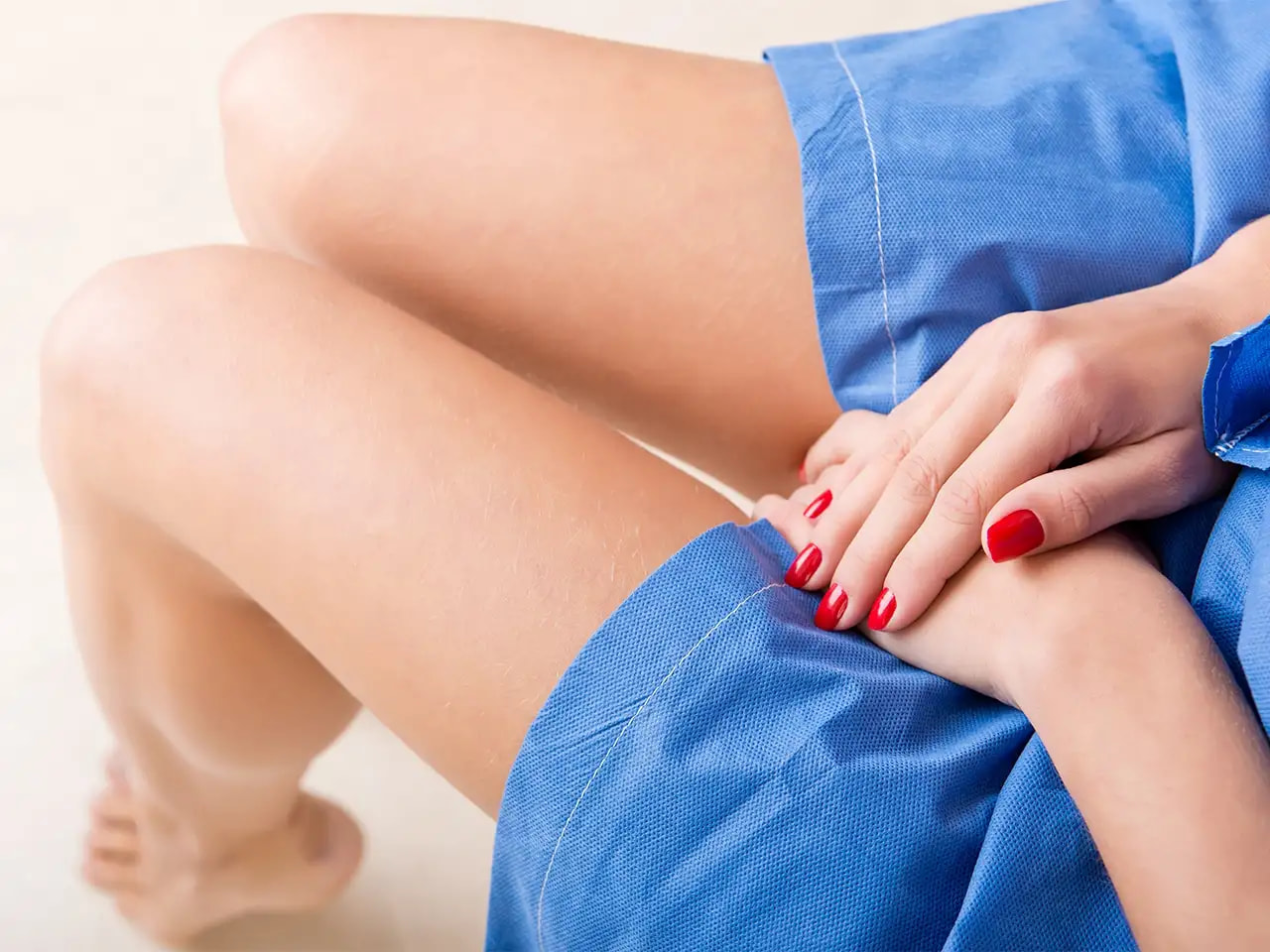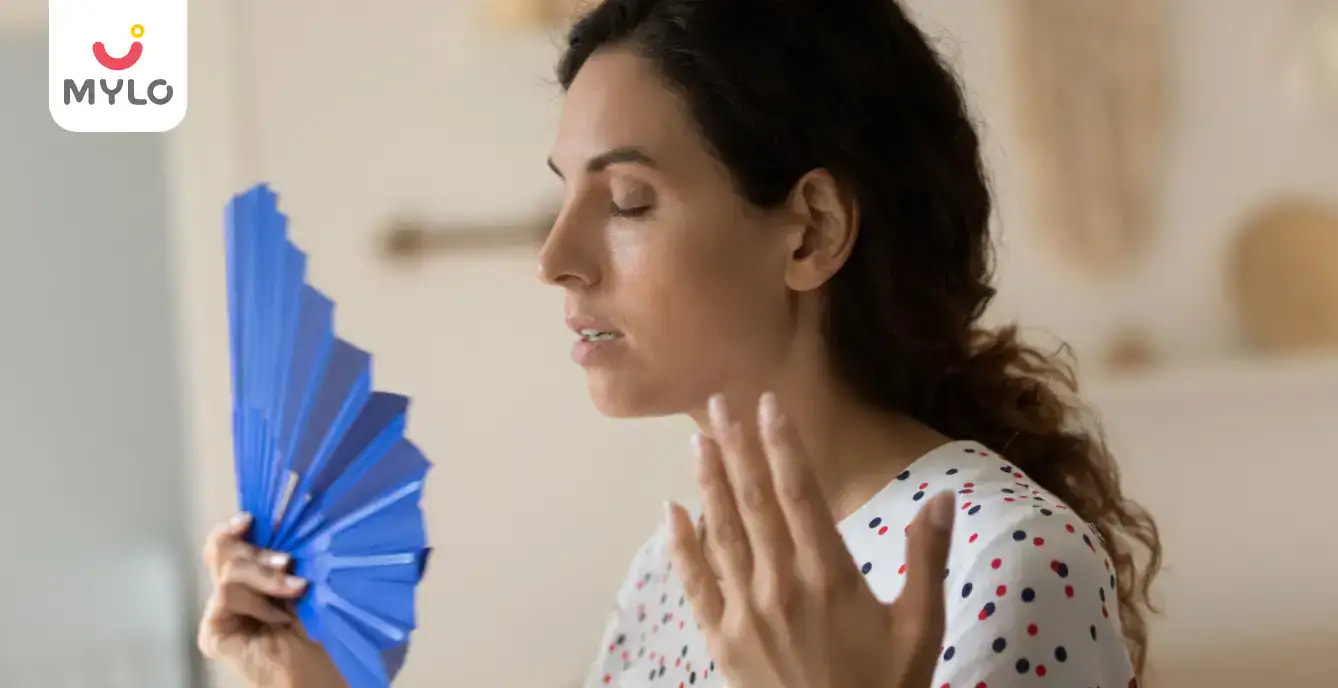Home

Postnatal Care

Arthritis After Pregnancy: Causes and Treatment
In this Article
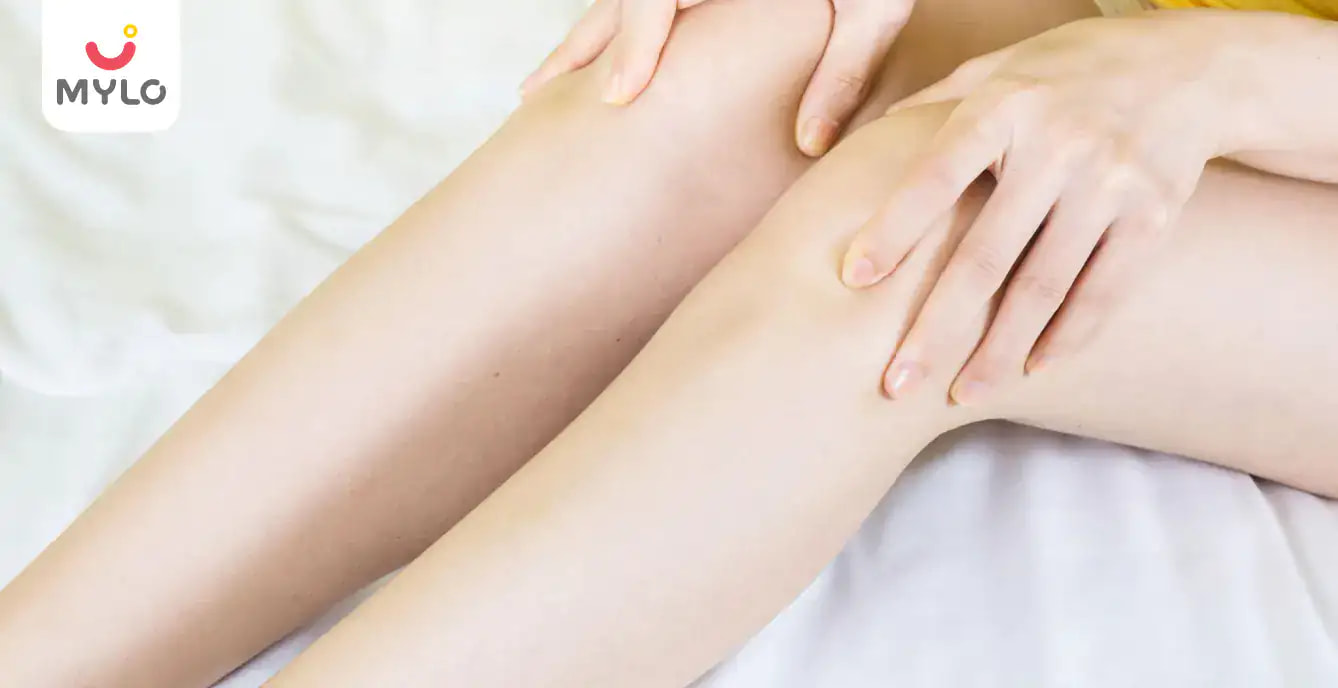
Postnatal Care
Arthritis After Pregnancy: Causes and Treatment
Updated on 3 November 2023
After pregnancy, many women experience a form of arthritis known as postpartum arthritis. This condition is caused by the changes in hormones that occur during pregnancy and can lead to knee pain after delivery, joint pain, stiffness, and inflammation. While postpartum arthritis is not a serious condition, it can be painful and uncomfortable. This blog post explores the causes of postpartum arthritis and discusses some treatment options.
What Is Postpartum Arthritis?
Postpartum arthritis is a type of arthritis that can develop after pregnancy. It is most common in women who are over the age of 40. Several risk factors can increase a woman's chance of developing postpartum arthritis, such as having a history of arthritis, being overweight, or having certain medical conditions (such as diabetes).
Areas Where Someone Can Expect Joint Pain
Following are some of the most common types of arthritis that can cause joint pain after pregnancy.
Osteoarthritis: Osteoarthritis is the most common type of arthritis, and usually affects people over the age of 50. However, it can occur at any age, including after pregnancy. Osteoarthritis is caused by the wear and tear of cartilage on the joints. This can happen due to normal ageing, injury, or overuse of joints. Symptoms include pain, stiffness, and swelling in the affected joints.
Rheumatoid Arthritis: Rheumatoid arthritis is an autoimmune disorder that causes inflammation of the joints. It typically affects people between the ages of 40 and 60, but can also occur after pregnancy. Women are three times more likely to develop rheumatoid arthritis than men. The cause is unknown, but it is believed to be linked to genes and environmental factors.
Postpartum Hip Pain
After giving birth, many women experience hip pain due to the changes in their bodies. This can cause instability in the joints and muscles surrounding the hips, leading to pain. Additionally, weight gain during pregnancy can put added pressure on the hips, which can also lead to pain.
Joint Pain After Delivery
Joint pain is a common symptom of arthritis. It can occur in any joint in the body but is most common in the knees, hips, and hands. Joint pain can range from mild to severe and can be accompanied by other symptoms such as stiffness, swelling, and redness.
Knee Pain After Delivery
It is not uncommon for women to experience knee pain after delivery. This can be caused by increased weight and pressure on the knees during pregnancy. In addition, the hormone relaxin, which is released during pregnancy to help relax the ligaments and joints, can also contribute to knee pain after delivery.
What Are The Causes Of Postpartum Arthritis
Many different factors can contribute to the development of postpartum arthritis. The most common cause is the change in hormones that occurs after childbirth. This can cause the ligaments and joints to become lax, which puts additional stress on the joints and can lead to inflammation. Other causes include weight gain, changes in activity level, and joint trauma.
How Long Does Postpartum Arthritis Last
The hormone relaxin, which is released during pregnancy to help the joints loosen and the pelvis expand for childbirth, can stay in the body for up to six weeks post-delivery. Treatment for postpartum arthritis typically includes a combination of medication and physical therapy. In some cases, surgery may be necessary to correct the underlying joint problem.
How To Manage Arthritis After Delivery
There are a few things that can be done to manage postpartum arthritis after delivery:
1. Exercise: Exercise can help to strengthen the muscles around the joints and improve the range of motion. It is important to start slowly and build up gradually. Talk to the doctor or physical therapist before starting an exercise program.
2. Pain relief: Over-the-counter pain relievers such as acetaminophen or ibuprofen can help to relieve pain and inflammation. Be sure to follow the directions on the package carefully.
3. Heat and cold therapy: Applying heat or cold to the affected joint can also help to reduce pain and inflammation. Try using a heating pad or ice pack for 15-20 minutes at a time, several times a day.
4. Weight management: Maintaining a healthy weight is important for reducing stress on the joints. If someone is overweight, losing even a few pounds can make a difference.
5. Assistive devices: Using assistive devices such as a cane or walking stick can help to take pressure off of the joints and reduce pain.
Conclusion
If one is experiencing postpartum arthritis, know that they are not alone. This condition is quite common and can be caused by a variety of factors. The good news is that there are treatments available that can help improve symptoms and quality of life. Be sure to talk to the doctor about the best option and don't hesitate to ask for help if needed. Head over to the Mylo family to explore blogs about pregnancy and more.



Written by
Sanju Rathi
A Postgraduate in English Literature and a professional diploma holder in Interior Design and Display, Sanju started her career as English TGT. Always interested in writing, shetook to freelance writing to pursue her passion side by side. As a content specialist, She is actively producing and providing content in every possible niche.
Read MoreGet baby's diet chart, and growth tips

Related Articles
Related Questions
Hello frnds..still no pain...doctor said head fix nhi hua hai..bt vagina me pain hai aur back pain bhi... anyone having same issues??

Kon kon c chije aisi hai jo pregnancy mei gas acidity jalan karti hain... Koi btayega plz bcz mujhe aksar khane ke baad hi samagh aata hai ki is chij se gas acidity jalan ho gyi hai. Please share your knowledge

I am 13 week pregnancy. Anyone having Storione-xt tablet. It better to have morning or night ???

Hlo to be moms....i hv a query...in my 9.5 wk i feel body joint pain like in ankle, knee, wrist, shoulder, toes....pain intensity is high...i cnt sleep....what should i do pls help....cn i cosult my doc.

Influenza and boostrix injection kisiko laga hai kya 8 month pregnancy me and q lagta hai ye plz reply me

Related Topics
RECENTLY PUBLISHED ARTICLES
our most recent articles

Diet & Nutrition
গর্ভাবস্থায় আলুবোখরা: উপকারিতা ও ঝুঁকি | Prunes During Pregnancy: Benefits & Risks in Bengali

Diet & Nutrition
গর্ভাবস্থায় হিং | ঝুঁকি, সুবিধা এবং অন্যান্য চিকিৎসা | Hing During Pregnancy | Risks, Benefits & Other Treatments in Bengali

Women Specific Issues
স্তনের উপর সাদা দাগ: লক্ষণ, কারণ এবং চিকিৎসা | White Spots on Nipple: Causes, Symptoms, and Treatments in Bengali

Diet & Nutrition
গর্ভাবস্থায় পোহা: উপকারিতা, ধরণ এবং রেসিপি | Poha During Pregnancy: Benefits, Types & Recipes in Bengali

Diet & Nutrition
গর্ভাবস্থায় মাছ: উপকারিতা এবং ঝুঁকি | Fish In Pregnancy: Benefits and Risks in Bengali

Diet & Nutrition
গর্ভাবস্থায় রেড ওয়াইন: পার্শ্ব প্রতিক্রিয়া এবং নির্দেশিকা | Red Wine During Pregnancy: Side Effects & Guidelines in Bengali
- ইনার থাই চ্যাফিং: কারণ, উপসর্গ এবং চিকিৎসা | Inner Thigh Chafing: Causes, Symptoms & Treatment in Bengali
- গর্ভাবস্থায় ব্রাউন রাইস: উপকারিতা ও সতর্কতা | Brown Rice During Pregnancy: Benefits & Precautions in Bengali
- Velamentous Cord Insertion - Precautions, Results & Safety
- Unlock the Secret to Flawless Skin: 7 Must-Have Qualities in a Face Serum
- Unlock the Secret to Radiant Skin: How Vitamin C Serum Can Transform Your Complexion
- Gender No Bar: 10 Reasons Why Everyone Needs a Body Lotion
- Unlock the Secret to Radiant Skin How to Choose the Perfect Body Lotion for Your Skin Type
- Top 10 Reasons to Apply a Body Lotion After Every Bath
- Communication in Toddlers: Milestones & Activities
- How to Improve Vocabulary for Toddlers?
- A Comprehensive Guide to Understanding Placenta Accreta
- Vulvovaginitis in Toddlers Causes, Symptoms and Treatment
- A Comprehensive Guide to Understanding Cerebral Palsy in Children
- Bitter Taste in Mouth During Pregnancy: Understanding the Causes and Remedies


AWARDS AND RECOGNITION

Mylo wins Forbes D2C Disruptor award

Mylo wins The Economic Times Promising Brands 2022
AS SEEN IN

- Mylo Care: Effective and science-backed personal care and wellness solutions for a joyful you.
- Mylo Baby: Science-backed, gentle and effective personal care & hygiene range for your little one.
- Mylo Community: Trusted and empathetic community of 10mn+ parents and experts.
Product Categories
baby carrier | baby soap | baby wipes | stretch marks cream | baby cream | baby shampoo | baby massage oil | baby hair oil | stretch marks oil | baby body wash | baby powder | baby lotion | diaper rash cream | newborn diapers | teether | baby kajal | baby diapers | cloth diapers |



